Delayed a year due to the coronavirus pandemic, the Tokyo Olympics were unlike any other.
WIth its strict protocols, it was the first modern Olympic Games to be played without spectators. But these Games will be known for many other firsts as well. In addition to the many world records that were broken so far, the Tokyo Games were full of historic representation in competition and inspirational victories by barrier-breaking athletes.
Here are some of the entries headed to the record books after this unique Olympics.
Sunisa Lee made history
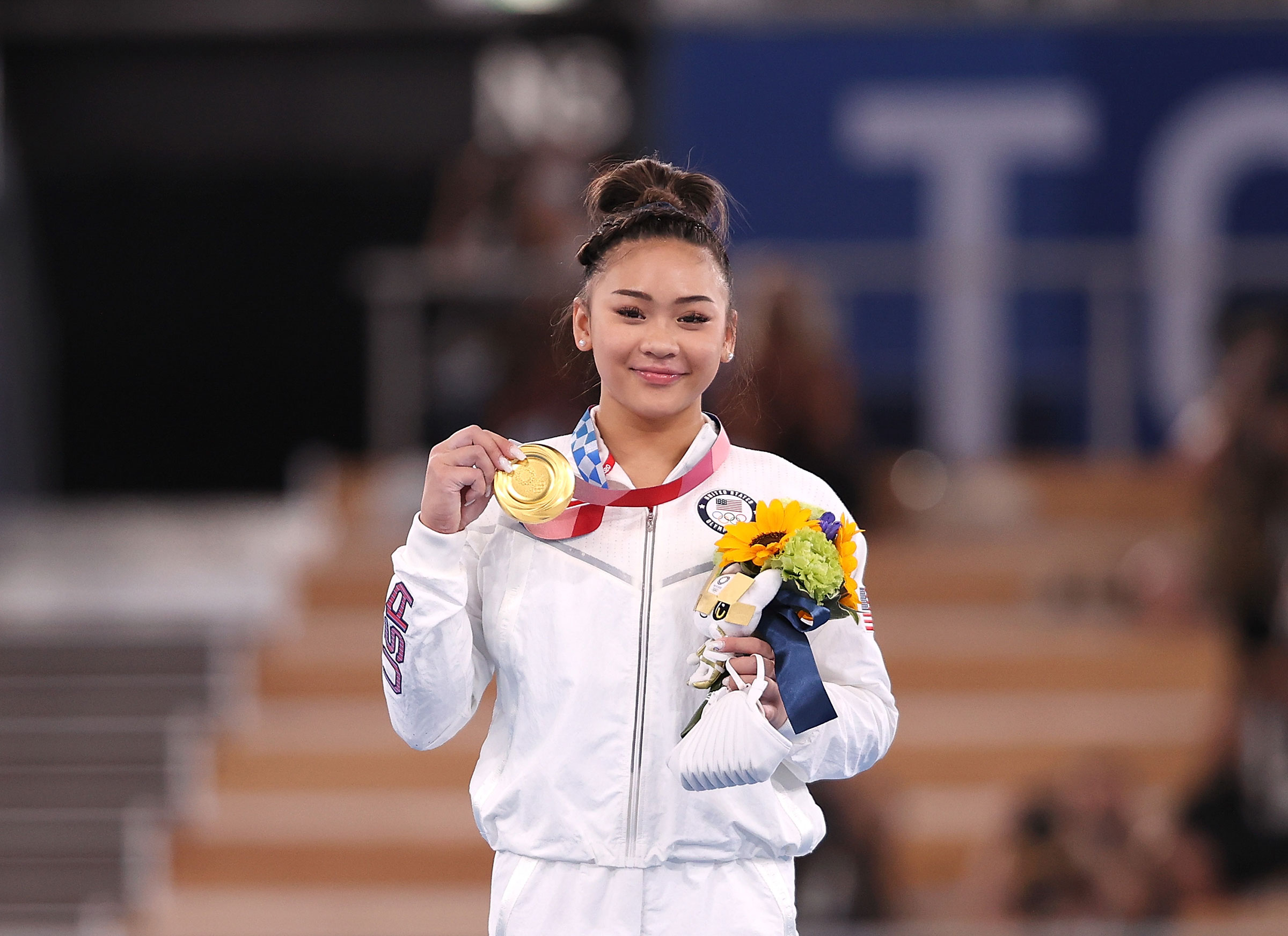
Sunisa Lee became the first Hmong American Olympic gold medalist after she bested the competition in the individual all-around competition. The 18-year old also helped Team USA win silver in the team all-around final and won bronze in the uneven bars final during her Olympic debut.
First-ever gold medal for Bermuda
The tiny island of Bermuda found its first Olympic champion in Flora Duffy who won the country’s first-ever gold medal after competing in the women’s triathlon, where she swam, biked, and ran her way to victory.
First openly non-binary U.S. athlete competed
Alana Smith, an American skateboarder, was the first openly non-binary Team USA athlete to compete at the Games. They said in an Instagram post that their goal for the Games was “to be happy and be a visual representation for humans like me.”
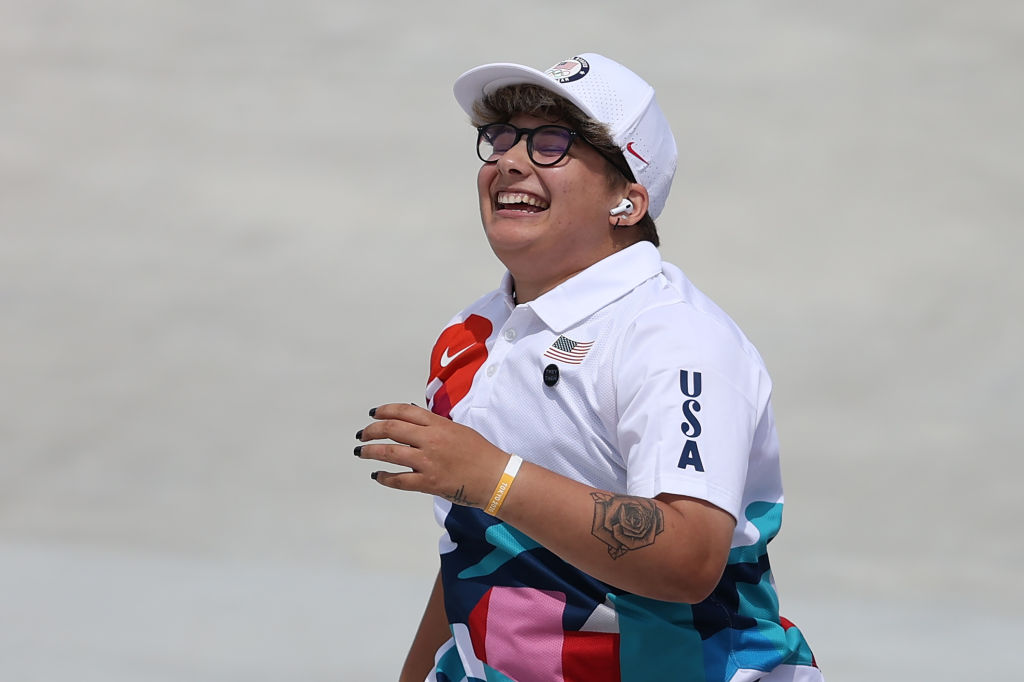
First-ever medal for Turkmenistan
When weightlifter Polina Guryeva lifted 217 kilograms (478 lbs) she won the silver medal—the first medal for her country since it declared independence from the Soviet Union. “No sport in Turkmenistan has had a medal, not one medal,” she said, according to the Associated Press. “I’m so in shock.”
First siblings to win gold on the same day
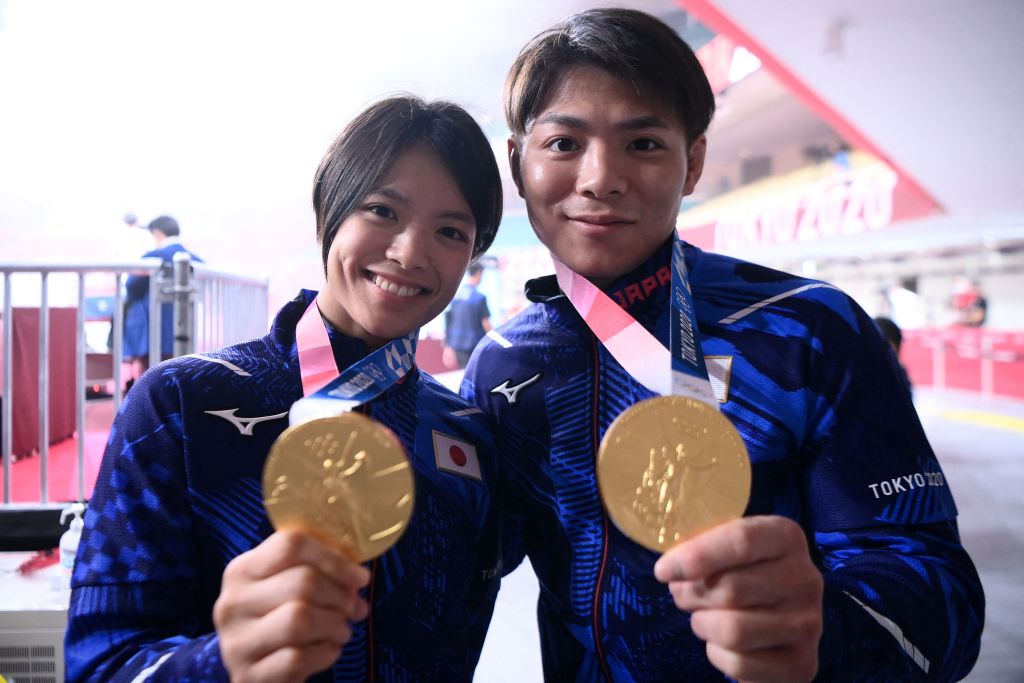
Brother and sister Hifumi Abe and Uta Abe of Team Japan each won gold in their respective judo divisions. Their wins made them the first siblings to win gold in individual events on the same day, the IOC reported.
Smallest country yet won a medal
When Alessandra Perilli earned a bronze medal in women’s trap shooting, it was the first-ever medal for San Marino, the tiny nation in Southern Europe. As an added fun fact, Perilli’s feat helped San Marino, with a population of only 34,000, become the smallest country to ever medal at the Games. Perilli went on to win another medal, this time silver, in the mixed team trap category with Gian Marco Berti. Myles Amine won another bronze medal for the country in wrestling.
First surfing, skateboarding, karate and sport climbing medals awarded
Thirteen-year-old Momiji Nishiya of Team Japan won the first-ever gold medal in women’s street skateboarding. In fact, Japan took three of the four gold medals in skateboarding’s inaugural Olympics. Team USA’s Carissa Moore won gold in the first-ever women’s surfing competition while Ítalo Ferreira claimed the top spot on the men’s side. In karate, one notable gold went to Japan’s Ryo Kiyuna, who hails from the martial art’s home of Okinawa. In sport climbing, Slovenia’s Janja Garnbret and Spain’s Alberto Ginés López won the first golds.
The first U.S. Black woman won wrestling gold
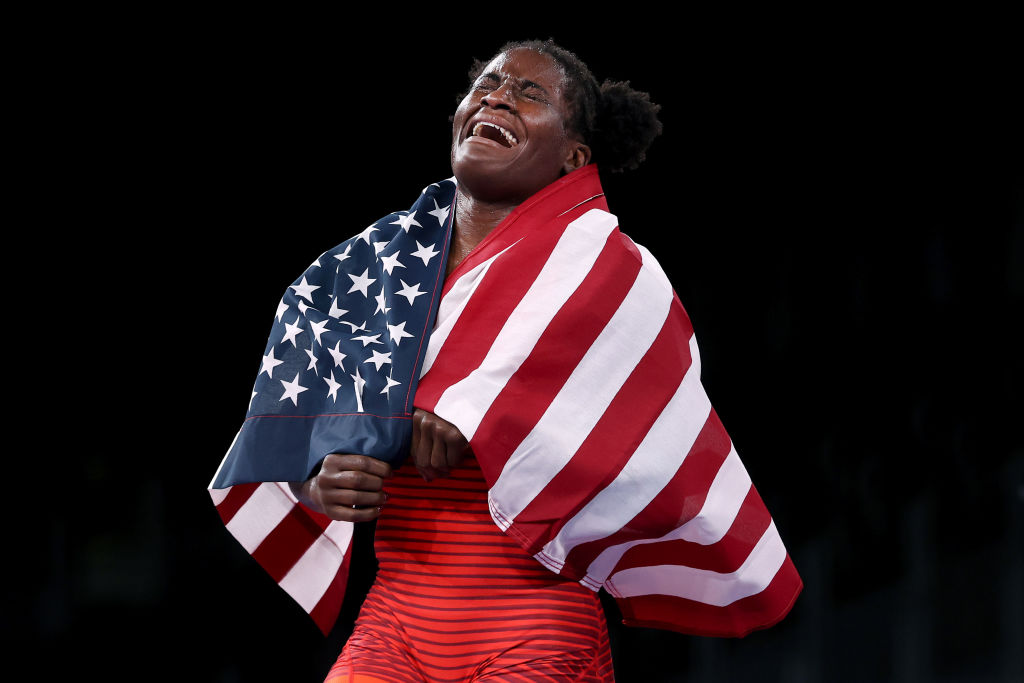
Tamyra Mensah-Stock became the first U.S. Black woman to win Olympic gold in wrestling after winning the 68-kg freestyle final. “I’m like, ‘Oh my gosh, look at us representing,’ ” Mensah-Stock said, according to The Associated Press. “It’s so freaking awesome. You’re making history, I’m making history. We’re making history. So it meant a lot.”
Swimming into history
Katie Ledecky cemented her place in swimming history by bringing her cumulative Olympic individual gold medal count to six, more than any swimmer except Michael Phelps. She also won the first-ever women’s 1,500-m freestyle gold as the event made its Olympic debut (men have been swimming the race for a.
Also in the pool, Australia’s Emma McKeown won seven medals in Tokyo, tying the record for the most medals any female Olympian has ever won in a single Games. (The record was set by gymnast Maria Gorokhovskaya of the Soviet Union in 1952).
First gender-balanced Olympics
The Tokyo Games are the “first gender-balanced Games in history,” the IOC reported. Almost 49% of the athletes competing are women. The Paralympics also have a record number of female competitors, the committee reports.
The Philippines won its first gold
Filipina weightlifter Hidilyn Diaz won her country’s first-ever gold medal, seeming to easily lift a whopping 127kg (279 pounds!).
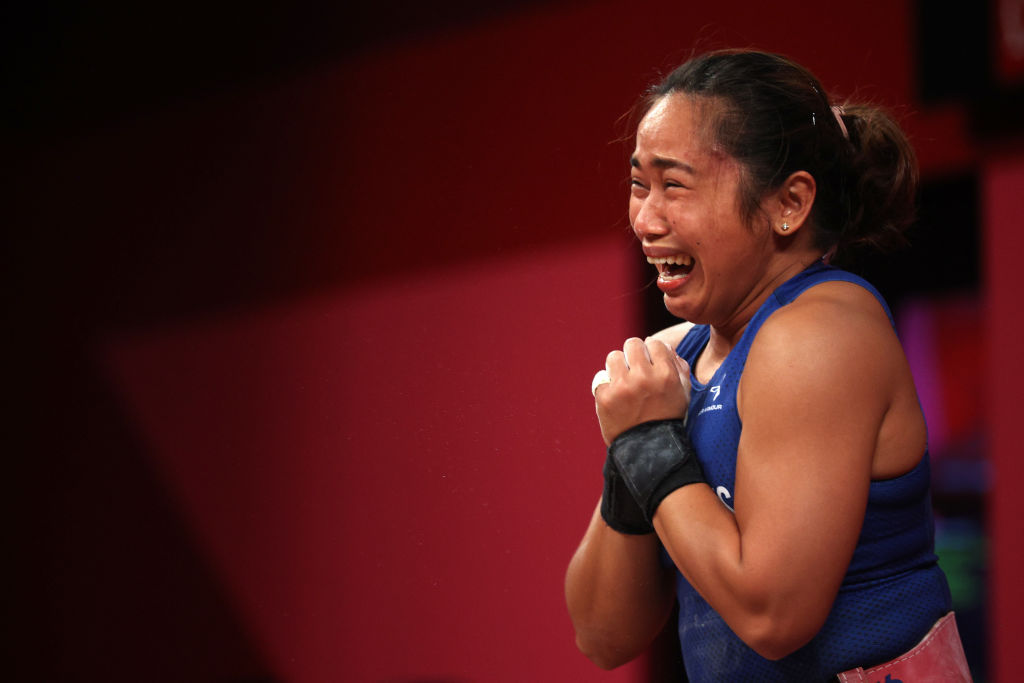
First openly trans athletes represented their countries
While transgender athletes have been welcome to compete in the Olympics since 2004, no one has done so openly until now. This year, Canadian soccer player Quinn became the first openly trans athlete to win an Olympic medal; Canada’s women’s soccer team won gold. New Zealand weightlifter Laurel Hubbard was the first trans athlete to ever compete in the Olympics. And Chelsea Wolfe, a BMX freestyle alternate, became the first openly transgender athlete on Team USA.
Felix’s record medal haul
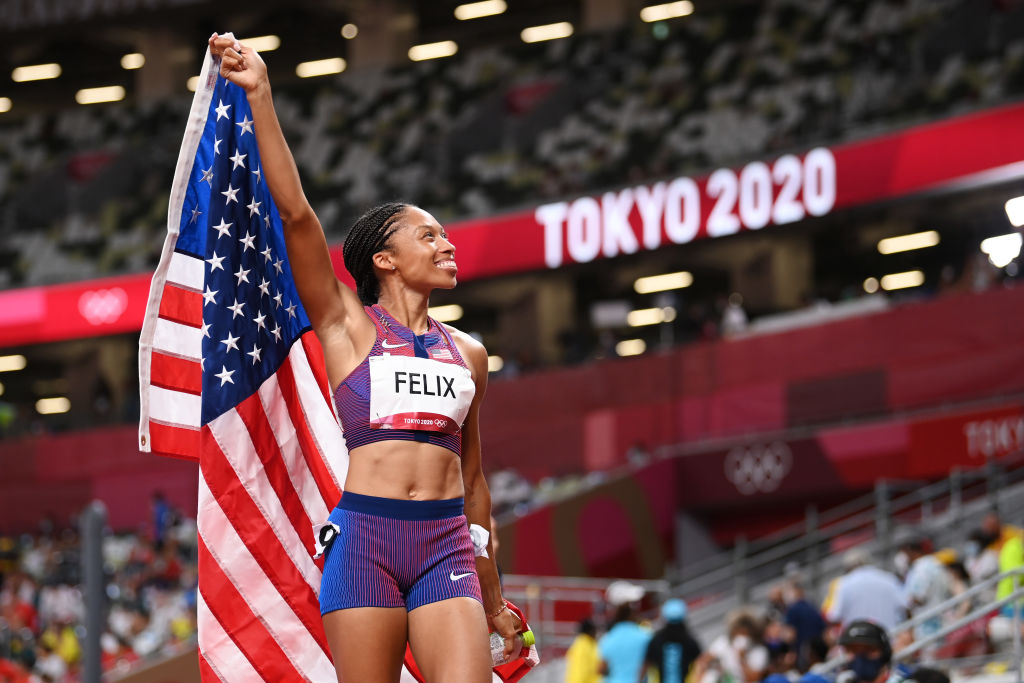
Allyson Felix, with a third-place finish in the women’s 400 m, won her 10th Olympic medal to become the most decorated Olympic female track-and-field athlete of all time. She’s also tied with Carl Lewis for the most Olympic medals won by a U.S. track athlete.
Some of the youngest athletes ever competed—and won medals
Twelve-year-old table tennis star Hend Zaza of Syria was the youngest competitor ever in her sport in Olympic history. At 13, Team Great Britain skateboarder Sky Brown was her country’s youngest-ever athlete to compete in the Summer Games. Team Japan skateboarder Kokona Hiraki, 12, was also the youngest Summer Olympian for her country.
Read more about the Tokyo Olympics:
More Must-Reads from TIME
- Why Trump’s Message Worked on Latino Men
- What Trump’s Win Could Mean for Housing
- The 100 Must-Read Books of 2024
- Sleep Doctors Share the 1 Tip That’s Changed Their Lives
- Column: Let’s Bring Back Romance
- What It’s Like to Have Long COVID As a Kid
- FX’s Say Nothing Is the Must-Watch Political Thriller of 2024
- Merle Bombardieri Is Helping People Make the Baby Decision
Contact us at letters@time.com